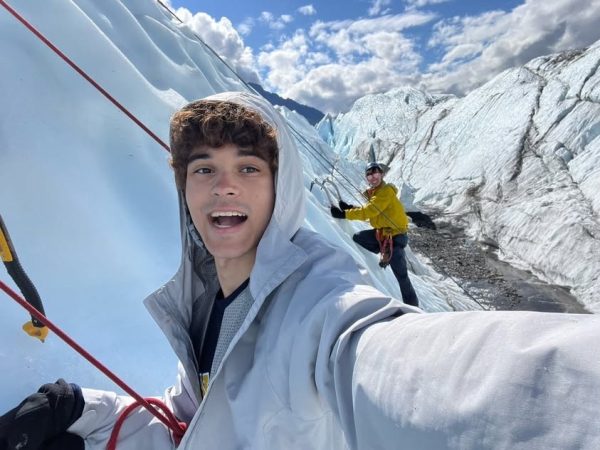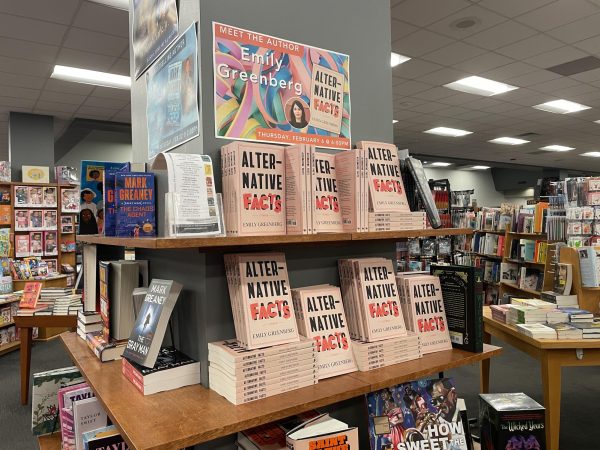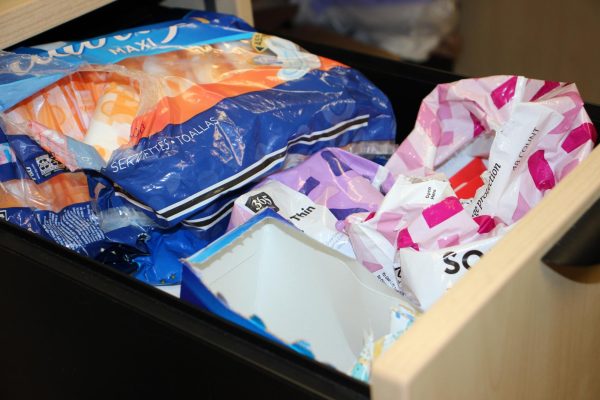Veterans of White Station
Veterans fought in wars, fired guns and dropped bombs to kill the enemy and preserve our freedom, right? Wrong. Veterans served our country in various ways through the military, sometimes in combat, but typically through other means.
“If you serve your country one day, you are still considered to be a veteran,” Sergeant James Washington said.
Sergeant Washington is one of the Junior Reserve Officer’s Training Corps instructors at White Station and an Army veteran. He served from 1988 to 2007 as a platoon sergeant, gunnery sergeant and a section chief.
“As a platoon sergeant, I was in charge of a 48 man platoon, [of] which I was artillery. My job was to make sure that each gun was safe, that they were following correct procedures and protocol as artillerymen. Also, I distributed ammunition, worked alongside the platoon leader, which is a lieutenant, to assist him in anything that he needed, and also helped train the lieutenant,” Sergeant Washington said.
Sergeant Washington also served in the Mississippi National Guard through Active Component Reserve Components, where he was responsible for training his battalion.
Through his work in the military, Sergeant Washington steadily grew into a better leader.
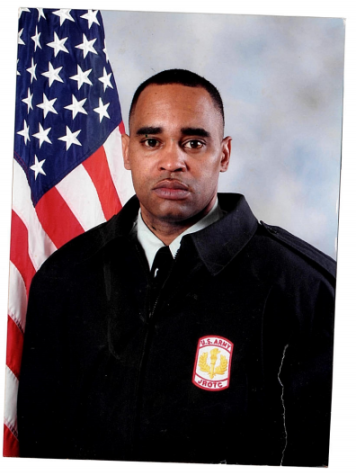
“When I was a platoon sergeant and left my platoon in Louisiana to go to Starkville, Mississippi, my platoon actually went to war to fight. When I was called back there, the soldiers, they wanted their old platoon sergeant back. ‘I want Sergeant Washington back. This new guy is a recruitee. He doesn’t know anything about artillery…’ That impacted me the most,” Washington said.
He continued to use these new found leadership skills teaching JROTC. A few years after retiring from the military, Sergeant Washington came to White Station to train and teach the cadets as he taught and trained his soldiers in years past.
“I get a chance to be around these high school kids and teach them army stuff. I can wear my uniform. It’s like I’m in the military but I’m working in a high school,“ Washington said.
Fellow JROTC instructor and Army veteran, Royce Myers, works alongside Sergeant Washington, teaching cadets. However, his days in the Army looked much different than his current classroom days.
Myers was an optician for the Army from 1982 to 2002. He served in an American laboratory fabricating eyewear; later, he worked in Germany.
Once Myers returned to the United States and Fort Hood, where he had been stationed previously, he stopped creating eyewear and scopes and managed an eye clinic, working more closely with the people he was helping.
“I was the main person to make sure that my technician did a proper screening for the patient when they came in before they saw the optometrist. We were responsible for the initial patient history. We did visual field screenings,” Myers said.
Myers enjoyed working more closely with the patients as he currently does with the cadets.
“I could see the good that I was doing. The reward was visible. It was tangible… My first patient that I did, he was a little kid and he came and got his first pair of eyeglasses. When he put the eye glasses on, his eyes kind of lit up because he could actually see everything clearly. To see the little boy’s face just light up and everything, that’s worth it right there. It’s all about giving back,” Myers said.
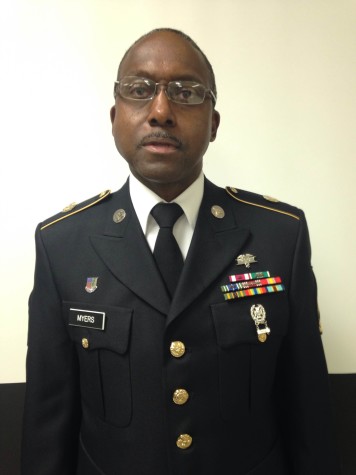
Myers has worked with the White Station JROTC cadets since 2002.
“I chose White Station, and I guess it was God’s will that I come here because I’ve been here ever since. I really enjoy being here,” Myers said.
God’s will lead not only Myers here, but Colonel Michael Bailey as well. Assistant Principal, Colonel Bailey, served in various positions in the United States Air Force from 1971 to 1993. He was a C141 transport pilot, a nuclear airlift planner, a chemical warfare planner, and an airlift director.
“As an airlift director I managed the flow of airplanes and crews into and out of various operations we were doing. I also worked as a director of joint airborne air transportability training which has to do with airdrop,” Colonel Michael Bailey said.
Colonel Bailey was involved in the Vietnam War, Operation Desert Storm and Operation Urgent Fury.
“During the Vietnam War I was just a basic navigator. I just flew missions in and out of combat zones. I got 65 combat missions flying into that environment where they’re shooting at you. I’ve had a missile shot at me,” Bailey said.
Bailey was also involved in humanitarian work through the military. During his service, he went to Mauritius to help after a hurricane leveled the island.
Colonel Bailey’s original push to go into the military came from his family ties.
“My father being in the military in World War II led me in the direction of serving the country, but both of my older brothers were both in the service. One was in the Navy. One was in the Marine Corps. With my dad being in the Army, me being in the Air Force, and them being in the Marines and the Navy, we kind of covered it all,” Bailey said.
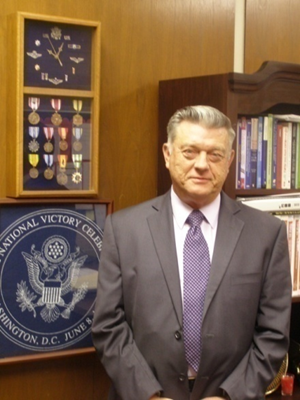
Before joining the Air Force Colonel Bailey taught at Snowden Junior High and Raleigh Egypt High. After teaching post military for 9 years, he studied at the University of Memphis to obtain a degree in supervision and administration. This led him to becoming the principal at Raleigh Egypt High School and then assistant principal here.
“I think if you take my entire time in service and my entire time serving here— that there was a whole lot of it that God had a whole lot to do with. That’s just the way I feel,” Bailey said.
Another United States Air Force veteran at White Station is Maridee Cornell. Cornell served from 1993 to 2002. Throughout her service she was a radiation safety officer, the regional consultant for health physics, in charge of the radioactive waste disposal office and the instructor for all health physics.
“When I was the radiation safety officer that was for a hospital so I was responsible for radiology, nuclear medicine, all those kinds of things. A lot of times I was helping bases stay in compliance and making recommendations to them on how they could improve their programs… When I was at Brooks Air Force Base, in charge of the waste office, we handled waste disposal of all radioactive materials for the Air Force,” Maridee Cornell said.
Within these positions, Cornell was on standby during the September 11 attacks. Her department and colleagues had to be ready in case of unforeseen problems after the plane crashes.
“I was a mom at the time so that was really my first priority. I had a little bitty daughter who was about two and a half at the time,” Cornell said. “But, as far as my job, our biggest concern was was there any radioactive material involved? Did we have a dirty bomb scenario? Was it included? Was there anything in the towers that was going to cause radioactive exposure? Those were our biggest concerns.”
The Air Force provided Cornell with unique opportunities such as hanging out of a helicopter over an aircraft carrier to measure radio frequency waves and driving tanks.
“I am the daughter of a Marine. I served in the Air Force. I married and divorced Army, and I lived on Navy bases so I was never, until now, never really knew life outside the military…I’m military through and through, always have been,” Cornell said.
Cornell taught at St. Agnes and Sheffield before her time in the military and White Station after.
Freshmen teacher, Bob Alberson found his way to White Station through sports and Coach Joe Rocconi, after joining the Marine Corps in 1998 and retiring in 2003. Alberson was a fire team leader, a squad leader and a platoon guide during his service.
“I was in charge of a Marine Corps fire team which consisted of a machine gunner, an assistant machine gunner, a point man guy and a grenadier: that was me. Our job was to close with and destroy the enemy,” Bob Alberson said.
Alberson was in the first battle of Fulusia and the Second Gulf War.
“[Combat]’s like being in a fight for about five or six days in a row… When I was in combat I was in charge of getting 12 Marines inside the combat zone and out of the combat zone alive. My responsibility was to the guys to the left and right of me,” Alberson said.
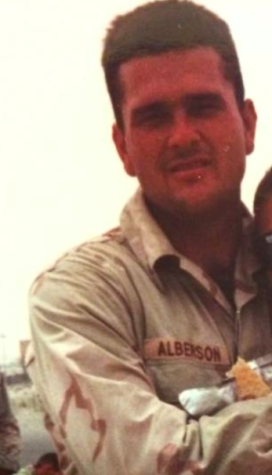
When he left the military, Alberson’s responsibilities shifted to the football, baseball and softball teams he coached, as well as his students.
“I met Coach Rocconi through emailing each other back and forth scheduling a football game together. We started talking about the school and it got to offering me a position, and they had the softball position open. I’ve coached softball the past 9 years so I fell right into that,“ Alberson said.
Being a veteran gives a newfound personal meaning to November 11: Veterans Day. It is unique for each one as their service and experiences are all different.
“A lot of people have put their life before me so it makes me very proud to say that I’m a veteran and we have a day just for us to celebrate,” Washington said.
“Veterans Day means to me that I can say thank you to all those that kind of paved the way for myself and some of my peers because without them we wouldn’t enjoy the things that we enjoy. So it’s more about me saying thank you to those who came before me than it is for me observing it you might say,” Myers said.
“Veterans Day is, I’m hoping that it is a renewed look by the public the rank and file of the people they need to be appreciative of. I think for me it means that for a moment we as a nation think about all of those people who have worn a uniform and served and the sacrifices they have made in order for us to be where we are. Veteran’s Day is a time for me to reflect on my service and my wife, having sacrificed what she did for me,” Bailey said.
“Veterans Day is, well I just lost my dad last year, so Veterans Day is more about me remembering my dad and my dad’s experiences. My dad served in Vietnam four different times. He was a career military person. He did 22 years. I grew up in the military. I grew up hanging around airplanes on military bases because Dad did radar, and I grew up sitting in classrooms that my dad taught in Millington. I used to go sit through those classes with him during the summer time when I was out of school. Veterans Day is all about me remembering my dad,” Cornell said.
“It’s kind of a time to reflect. I call my friends and talk to those people. 22 veterans commit suicide a day, and we have a little buddy system. We call and check on each other send funny messages and make sure that we are all doing okay. I also reflect on: My grandfather was in World War II. My father was in Vietnam. I was in the Second Gulf War. It’s kind of a tradition in our family. We are happy that we are still above the ground and get to see each other,” Alberson said.
Your donation will support the student journalists of White Station High School. Your contribution will allow us to purchase equipment and cover our annual website hosting costs.



































